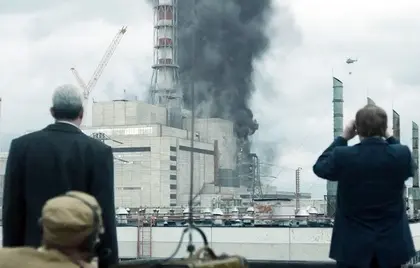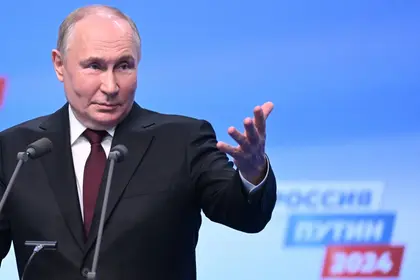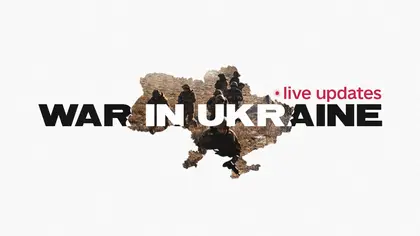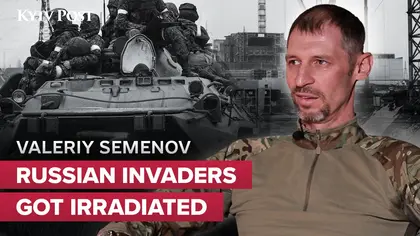“Chernobyl,” a five-part HBO miniseries, has taken the globe by storm, becoming the highest-rated television show ever, according to the Internet Movie Database, or IMDb.
Viewers have watched with fascination and horror as the world’s largest nuclear disaster unfolds onscreen. Many have admired the extreme attention the series pays to everyday details of Soviet life in the 1980s.
But the reactions have been distinctly different in Ukraine and Russia, two countries that — alongside Belarus — share the tragic history of the 1986 explosion at the Chornobyl nuclear plant and its aftermath.
In Russia, a state that still takes pride in the Soviet legacy, the series has faced criticism from the official media. Meanwhile, many in Ukraine appreciated the series for humanizing a tragic chapter in the country’s history.
“The film allowed us to relive the accident and rethink it,” film critic Andriy Alferov told the Kyiv Post. “Chornobyl is that spiritual bond that connects people all over Ukraine. Everyone was affected by it. Everyone had someone who either was evacuated or was involved in the cleanup.”
Reactions
Not all reactions were negative in Russia. Many appreciated “Chernobyl” as a high-quality work of cinematic art.
But the miniseries does appear to threaten the country’s official narratives of Soviet glory. State-funded media have railed against “Chernobyl,” both criticizing it for minor errors in its depiction of Soviet life and claiming it mischaracterizes the tragedy and the Soviet state’s response.
Bloomberg columnist Leonid Bershidsky, a veteran of Russian journalism, wrote that it would have been better if the Chornobyl disaster’s story had been told by an affected nation — Russia, Ukraine, or Belarus — to demonstrate that these countries have learned the value of truth.
In fact, Russia is doing just that — albeit without the lesson Bershidsky wanted.
Russian television channel NTV, owned by the state-controlled Gazprom gas monopoly, is producing its own Chornobyl series, set to premiere later this year. Its conspiratorial plot revolves around a KGB officer who arrives in Pripyat, the town that housed Chornobyl plant employees, on the eve of the explosion at Reactor Four to find a CIA agent “suspected of subversive activities.”
In Ukraine, the reaction to the HBO series was largely positive. Although the official Ukrainian premiere is scheduled for June 18 on 1+1, one of the country’s most watched television channels, many Ukrainians have already viewed the series online.
The show’s American release was followed by a boom in Chornobyl-focused journalism in Ukraine. Some local media examined the country’s role in producing the series, which was partially filmed in Ukraine. They looked at where certain scenes were shot and which local experts consulted with the filmmakers.
Other media interviewed historians, survivors, and liquidators (people involved in the cleanup of the damage from the nuclear disaster) on how accurately the characters and events were depicted in the series. Thanks to “Chernobyl,” the media’s attention span extended beyond the regular annual coverage of the disaster’s anniversary on April 26.
Ukrainian viewers also appreciated HBO’s “Chernobyl” for praising the heroism and self-sacrifice of ordinary people.
“There are no good or bad characters. Everyone loses. Everyone is terrified and lies. Everyone is human: army generals, state officials, miners, liquidators… and they all commit acts of heroism,” film critic Alferov said.
For many, it was a sobering reminder of the tragedy — history is being gradually forgotten even in Ukraine, the country that took the brunt of the human losses and environmental damage from the accident.
The series opened the floodgates of personal memories and reflections from survivors and liquidators of the Chornobyl disaster and their children and grandchildren.
“I think the ‘Chernobyl’ series is very therapeutic for our society. Our generation doesn’t reflect on Chornobyl,” said Emma Antonyuk, a TV journalist in Kyiv whose father was a liquidator.
“Many of my friends said that they didn’t even know some facts and people shown in the series. This show is a cold shower. We needed to be reminded about this tragedy and what the liquidators did.”
Antonyuk laments the meager reward her father receives for risking his health to clean up the zone.
Her father Oleksandr, originally from Chernivtsi Oblast in western Ukraine, was 18 when he was sent to the exclusion zone in 1986. For his two-year service in the highly radiated area, he now receives monthly compensation of Hr 200 ($7.5) and an extra Hr 100 ($3.7) for health rehabilitation.
On April 26, the 33rd anniversary of the disaster, he was invited to a local council along with other liquidators. As a gift, he received a book about the city of Chernivtsi.
“And he was genuinely pleased to be remembered,” said Antonyuk.
Read more: Real-life heroes of Chornobyl talk disaster, HBO show
HBO’s “Chernobyl” has garnered broad acclaim for its realism and authenticity in recreating the Soviet atmosphere thanks to producer and writer Mazin’s commitment to accuracy.
Mazin, who has been obsessed with the story of the Chornobyl disaster for years, called it “the final Soviet crime against Ukraine.”
His compelling telling of Chornobyl’s story is centered around the idea that the accident was the result of a series of lies. And even after it occurred, Soviet bureaucrats opted to conceal important information to preserve the state’s international image at the cost of many lives.
“I thought that it was so cruel of fate to have visited Chornobyl on this place, on Ukraine, which had had enough,” Mazin told the HBO podcast. He placed the Chornobyl disaster alongside other calamities inflicted on the country like the Holodomor, the 1930s Soviet-era manmade famine.
Mazin says “storytelling can be weaponized.” And this seems especially relevant in the current era of state propaganda, rampant disinformation, and rising populism.
“When people choose to lie, and when people choose to believe the lie, and when everyone engages in a massive conspiracy to promote the lie over the truth, we can get away with a lie for a very long time,” Mazin told HBO podcast. “But the truth […] will get you in the end.”
Chornobyl effect
Although most of the production of HBO’s “Chernobyl” took place in Lithuania, some parts were filmed in Ukraine.
Anyone familiar with Kyiv will recognize that Stalin-era high-rise topped with a star on Khreshchatyk Avenue from the beginning of the fifth episode. Other scenes were filmed in the city’s Troyeshchyna district, at the Hydrobiology Institute, the Vernadsky National Library, in the town of Pripyat, and at the Kyiv Sea.
Ukrainian production company Radioactive Film found Soviet-era props, from cups and carpets to cars, that gave the show its visual authenticity.
Moreover, American producers and production designers extensively consulted with the staff of the Chornobyl museum in Kyiv on the costumes of the firefighters and liquidators, a 3D model of the plant, equipment that was used during the clean-up, and a timeline of events.
The liturgical song played at the end of the final episode is a traditional Eastern Orthodox song for remembering the dead: Vichnaya Pamyat, or Memory Eternal in English. It was performed by the Lviv municipal choir, Homin.
Despite its grim premise, HBO’s “Chernobyl” has also sparked foreign interest in Ukraine.
Tour operators to the Chornobyl exclusion zone expect an increase in visitors, although the business has been growing steadily over the last few years.
“Tourism to the exclusion zone grows by 30–40 percent annually. Last year, we had nearly 70,000 visitors,” said Yaroslav Yemelianenko, head of the Association of Chornobyl tour operators. “The forecast for this year was 100,000 but we think the HBO series will bring us up to 50,000 visitors more.”
“We are preparing for a surge in bookings after the series ends and people will start planning their vacation. That’s why we’re opening new routes and hiring more guides.”
But the downside of such growth in tourism is yet to be seen. The last traces of human life in the zone — abandoned villages and the ghost town of Pripyat — are gradually falling apart due to natural decay and looting. Local police regularly report on catching illegal tourists, scrap metal collectors, and random pickers of mushrooms and berries in the still-contaminated area.
“Unfortunately, illegal visitors harm the zone the most, not official tourists who are under the supervision of guides,” Yemelianenko said.
The area already looks different from when Yemelianenko first visited in 2007.
“I have the impression that the zone is losing its texture,” he said. “Before, when I entered any apartment there was wallpaper, a table with books on it. Now the books and wallpaper are gone, only concrete walls are left. It is as if the base form remains but the content decays or gets pilfered,” he told the Kyiv Post. “The zone is slowly fading away.”
You can also highlight the text and press Ctrl + Enter







Comments (0)